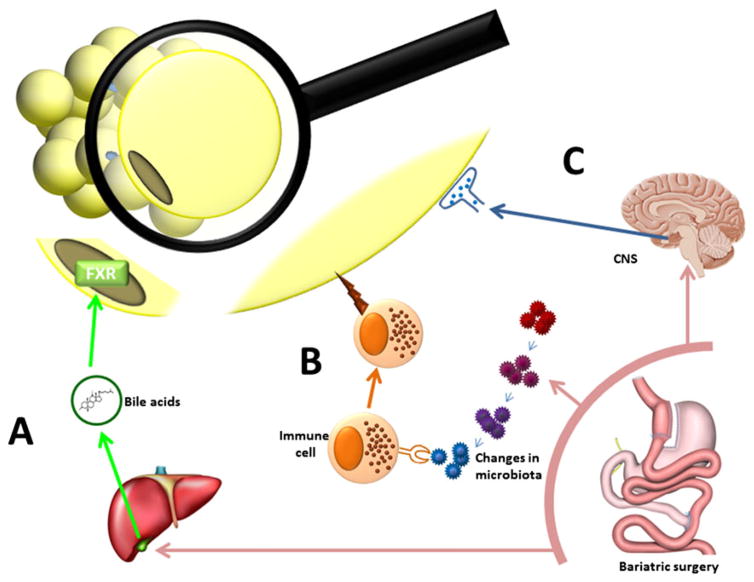Figure 3.
Proposed novel mechanisms for adipose improvement after surgery. A) It is persistently reported that plasma bile acid levels go up after bariatric surgery. Bile acids can act upon the FXR receptor causing effects in metabolic tissues, and genetic deletion of the FXR receptor eliminates the effect of sleeve gastrectomy in mice. We propose that changes in bile acid signaling induced by bariatric surgery have the capacity to improve the function of the adipocyte. B) With surgery the composition of the bacteria in the gut changes. There is a tight interaction between the microbiota and the immune system. With the recent discoveries that immune cells have ability to regulate metabolic outcomes and that immune cell populations known to respond to microbiota changes are found in the adipose tissues, there is the possibility that cells of the immune system can significantly impact adipose function and that these changes can be initiated by bariatric surgery. C) Adipose tissue receives innervation from the CNS, and this has physiological impact as denervation of specific depots causes hypertrophy. As bariatric surgery causes metabolic changes related to central regulation of metabolism this draws attention to the possibility that neural output to the adipose tissues are altered with surgery causing physiological changes.

